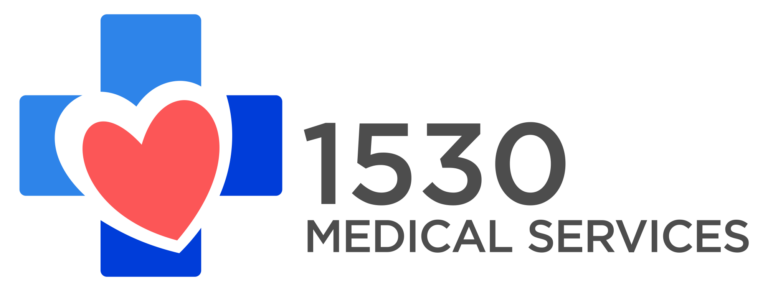Introduction
Definition of Telemedicine
Telemedicine refers to the practice of using digital communication tools, such as video conferencing, mobile apps, and online portals, to provide healthcare services remotely. It allows patients to consult with healthcare providers without needing to visit a clinic or hospital in person.
Importance of Professional Telemedicine Services
The benefits of telemedicine are vast, offering increased accessibility, convenience, and efficiency in healthcare delivery. Professional telemedicine services, like those offered by 1530 Medical Services, ensure that patients receive high-quality care with the same level of attention and expertise as in-person visits.
Introduction to 1530 Medical Services
1530 Medical Services is a leading provider of telemedicine services, known for its commitment to patient care and innovation in the healthcare industry. With a team of experienced medical professionals and state-of-the-art technology, they offer a wide range of services designed to meet the needs of diverse patient populations.
Types and Categories
Real-time Telemedicine
Real-time telemedicine involves live, interactive communication between patients and healthcare providers. This can include video consultations, phone calls, and instant messaging. It is ideal for situations requiring immediate attention and allows for real-time assessment and decision-making.
Store-and-Forward Telemedicine
Store-and-forward telemedicine involves the collection of medical data, such as images, videos, and patient records, which are then transmitted to a healthcare provider for review at a later time. This method is particularly useful for dermatology, radiology, and pathology consultations.
Remote Patient Monitoring
Remote patient monitoring (RPM) involves the use of devices that collect and transmit patient health data, such as blood pressure, glucose levels, and heart rate, to healthcare providers. This enables continuous monitoring of chronic conditions and early detection of potential issues.
Mobile Health (mHealth)
Mobile health, or mHealth, utilizes mobile devices and apps to deliver healthcare services and information. This includes wellness apps, appointment scheduling, medication reminders, and virtual health consultations. mHealth makes healthcare more accessible and convenient, particularly for patients in remote areas.
Symptoms and Signs
Identifying the Need for Telemedicine
Patients may seek telemedicine services for various reasons, such as difficulty accessing traditional healthcare facilities, the need for specialized consultations, or a preference for remote care due to convenience. Identifying these needs helps in determining the appropriate telemedicine approach.
Common Signs That Telemedicine Can Address
Common issues that telemedicine can effectively address include minor illnesses (such as colds and flu), chronic disease management, mental health support, and follow-up consultations. Telemedicine provides a viable alternative to in-person visits for these conditions.
Uncommon Signs and Their Telemedicine Solutions
Uncommon but significant signs that may benefit from telemedicine include rare diseases requiring specialized consultations, remote monitoring for post-surgical recovery, and management of complex chronic conditions. Telemedicine platforms can connect patients with the necessary specialists regardless of geographical barriers.
Causes and Risk Factors
Factors Driving the Need for Telemedicine
Several factors contribute to the growing demand for telemedicine, including the increasing prevalence of chronic diseases, the need for timely access to healthcare, and advancements in digital technology. These factors make telemedicine an essential component of modern healthcare.
Risks Associated with Delaying Telemedicine Consultations
Delaying telemedicine consultations can lead to worsening of conditions, complications, and increased healthcare costs. Prompt telemedicine consultations can prevent these risks by providing timely medical advice and interventions.
Socioeconomic and Geographic Risk Factors
Patients in rural or underserved areas often face significant barriers to accessing healthcare. Socioeconomic factors, such as lack of transportation and financial constraints, further exacerbate these challenges. Telemedicine helps bridge these gaps by providing accessible healthcare services regardless of location or economic status.
Diagnosis and Tests
Telemedicine Diagnostic Tools
Telemedicine employs various diagnostic tools, including video consultations, digital stethoscopes, otoscopes, and mobile ECG devices. These tools enable healthcare providers to conduct thorough examinations and make accurate diagnoses remotely.
Common Tests Conducted via Telemedicine
Common tests that can be conducted via telemedicine include blood pressure monitoring, glucose testing, dermatological assessments, and virtual mental health evaluations. These tests provide valuable insights into a patient’s health status without requiring an in-person visit.
Accuracy and Reliability of Telemedicine Diagnostics
The accuracy and reliability of telemedicine diagnostics have improved significantly with advancements in technology. High-resolution cameras, digital sensors, and secure data transmission ensure that healthcare providers receive accurate and reliable information for diagnosis and treatment.
Treatment Options
Medical Treatments Available Through Telemedicine
Telemedicine allows for the prescription of medications, management of chronic diseases, and treatment of minor illnesses. Healthcare providers can assess patients, recommend treatments, and monitor progress remotely, ensuring continuous and effective care.
Teletherapy and Mental Health Support
Teletherapy offers remote counseling and therapy sessions for mental health support. Patients can access licensed therapists for issues such as anxiety, depression, and stress management, providing a convenient and confidential way to receive mental health care.
Chronic Disease Management
Telemedicine plays a crucial role in managing chronic diseases like diabetes, hypertension, and COPD. Remote monitoring and regular virtual check-ins help patients maintain control over their conditions and reduce the need for frequent in-person visits.
Telemedicine for Minor Illnesses
Minor illnesses, such as colds, flu, and infections, can be effectively managed through telemedicine. Healthcare providers can assess symptoms, provide treatment recommendations, and prescribe medications, ensuring patients receive prompt care without needing to visit a clinic.
Preventive Measures
Preventive Care Through Telemedicine
Telemedicine supports preventive care by offering regular health check-ups, screenings, and wellness programs. Patients can receive guidance on maintaining a healthy lifestyle and preventing the onset of diseases through remote consultations.
Vaccination and Telemedicine
Telemedicine can assist in vaccination campaigns by providing information, scheduling appointments, and conducting follow-up consultations. This approach increases vaccination rates and ensures that patients receive timely immunizations.
Health Education and Telemedicine
Telemedicine platforms offer health education resources, including articles, videos, and webinars, to educate patients about various health topics. This empowers patients to make informed decisions about their

health and well-being.
Personal Stories or Case Studies
Success Stories from 1530 Medical Services
1530 Medical Services has numerous success stories demonstrating the effectiveness of their telemedicine services. Patients have experienced improved health outcomes, increased accessibility to specialists, and enhanced convenience through remote consultations.
Real-life Implications of Telemedicine
Real-life case studies highlight the positive impact of telemedicine on patient care. These stories illustrate how telemedicine has improved healthcare delivery, particularly for patients with chronic conditions and those living in remote areas.
Case Studies of Chronic Disease Management
Case studies of chronic disease management through telemedicine showcase the benefits of remote monitoring and regular virtual check-ins. Patients have reported better control of their conditions, reduced hospital visits, and improved quality of life.
Expert Insights
Quotes from Medical Professionals at 1530 Medical Services
Medical professionals at 1530 Medical Services provide valuable insights into the benefits of telemedicine. Their expertise and experience highlight the importance of adopting telemedicine as a standard practice in modern healthcare.
Advice on Utilizing Telemedicine Effectively
Experts recommend patients prepare for telemedicine consultations by having their medical history, medications, and questions ready. They also emphasize the importance of a reliable internet connection and a quiet environment for effective communication.
Future of Telemedicine According to Experts
Experts predict that telemedicine will continue to evolve, with advancements in technology enhancing its capabilities. The future of telemedicine includes more sophisticated diagnostic tools, improved patient-provider interactions, and greater integration with traditional healthcare systems.
Conclusion
Summary of Key Points
Telemedicine offers numerous benefits, including increased accessibility, convenience, and efficiency in healthcare delivery. 1530 Medical Services provides professional telemedicine services that ensure high-quality care for patients.
Call to Action for Further Education
Patients and healthcare providers are encouraged to explore telemedicine options and stay informed about its advancements. Continued education and awareness will help maximize the benefits of telemedicine in healthcare.
Encouragement to Explore Telemedicine Services by 1530 Medical Services
1530 Medical Services is dedicated to providing exceptional telemedicine services. Patients are encouraged to take advantage of their comprehensive telemedicine offerings for convenient and effective healthcare.

